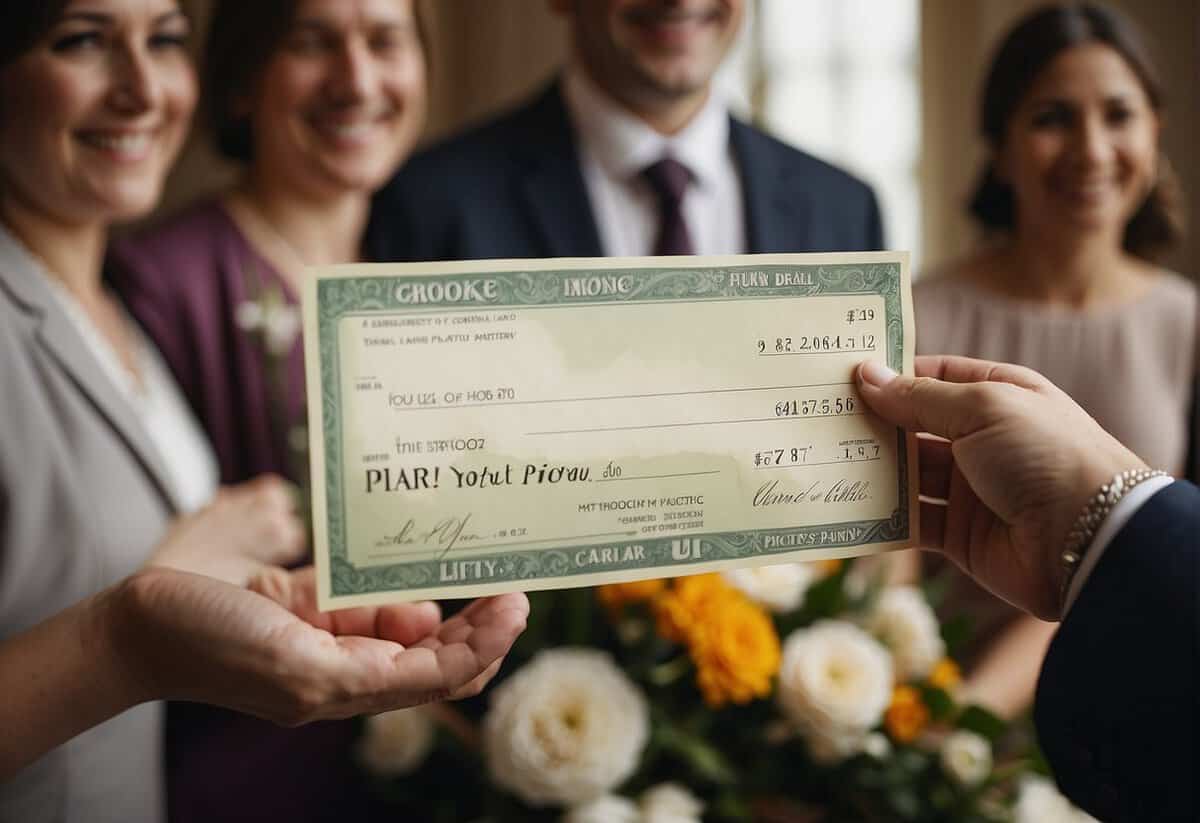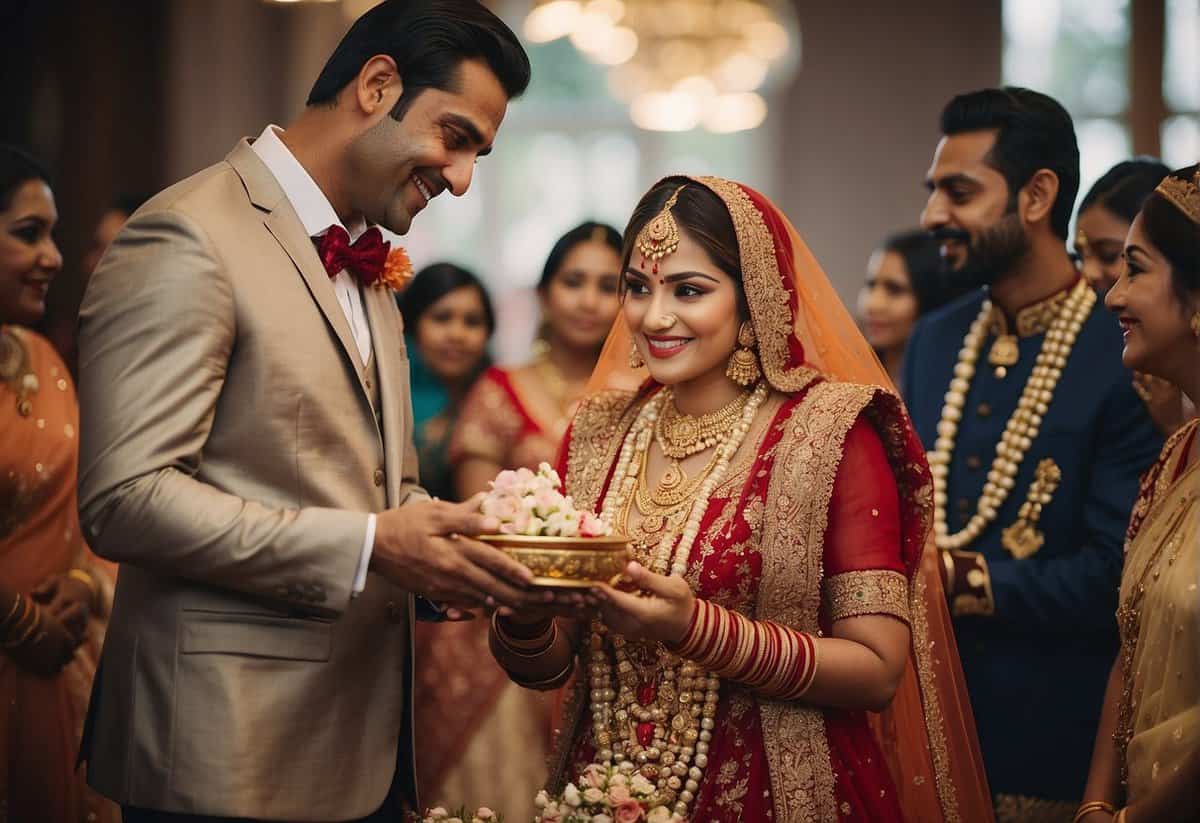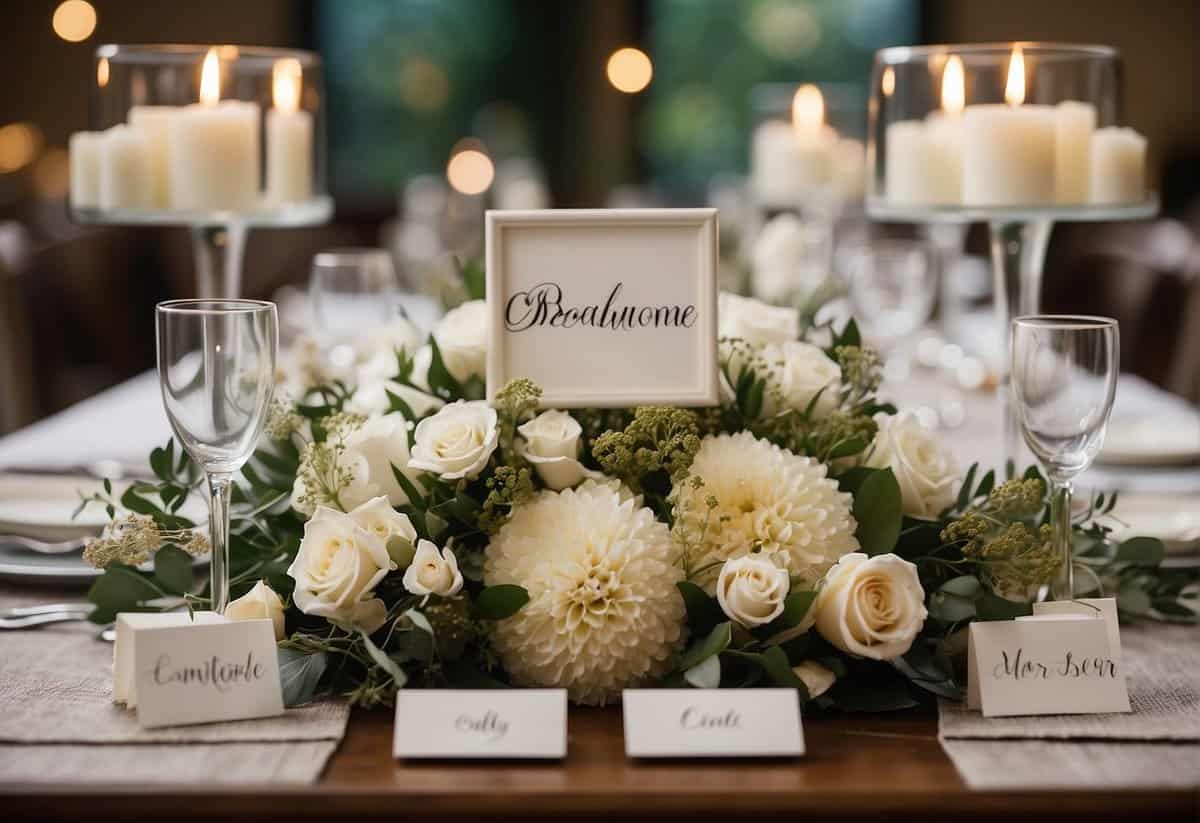Who Pays for Wedding UK Tradition: Understanding Financial Etiquette
Wedding traditions in the UK have long been steeped in history, with specific customs dictating who should bear the costs associated with getting hitched. Historically, it’s been the bride’s family who shoulders the majority of the financial burden. This would often include paying for the wedding reception, attire for the bridal party, and various other elements of the big day.

However, times are changing, and with them, wedding financial customs are evolving. Nowadays, it’s not uncommon for couples to share the cost with their families or even cover the entire event themselves. The idea of who pays for what is becoming more flexible, reflecting the diversity and individual circumstances of couples today. Many are moving away from the traditional route, choosing instead to approach wedding planning as a joint effort, emphasizing partnership and mutual support.
Key Takeaways
- Wedding cost traditions in the UK historically fell to the bride’s family.
- Modern practices often involve a shared financial approach among the couple and families.
- Flexibility and partnership now characterize modern wedding planning.
Historical Traditions and Responsibilities

In the picturesque tradition of UK weddings, distinct roles were carved out for the bride and groom’s families in terms of financial contributions, reflecting a bygone era of betrothal etiquette. Let’s delve into the specifics of who traditionally handled which wedding expenses.
Bride’s Family Obligations
The bride’s family was traditionally responsible for a large portion of the wedding expenses. This included the costs for the wedding dress, wedding stationery like invitations, and the venue hire for the wedding reception. They also covered the charges for floral decorations and the wedding cake. It wasn’t just the nuptials; pre-wedding elements like the engagement party also fell under their purview.
Groom’s Family Contributions
The groom’s family, while traditionally less encumbered than the bride’s, had their share of fiscal duties. Notable amongst these were the groomsmen’s attire, the groom’s outfit, and often, the groom’s ring. Furthermore, they sometimes took care of the officiant fee and hosted the rehearsal dinner, offering a prelude to the main event.
Shared Costs and Considerations
As time progressed, the sharp lines separating financial duties have blurred, ushering in a more inclusive approach to wedding planning. Nowadays, you might find the costs being split—the bride’s and groom’s families sharing the wedding budget. This could include contributions towards the wedding reception, wedding rings, and varied entertainment. The couple themselves often invest in the day, contributing to expenses like the engagement ring and portions of the wedding cost that hold personal significance.
Modern Wedding Expenses Breakdown

In a modern wedding, you’ll often see expenses shared in innovative ways compared to past traditions. Now, let’s explore how costs are typically divided among the bride and groom, as well as the bridal party and guests.
Essentials Covered by the Bride and Groom
Traditionally, the bride’s family would bear the brunt of the wedding expenses, but in today’s weddings, you, the couple, are likely to take responsibility for a significant portion of the wedding cost. This reflects the modern approach to weddings, with a desire for independence and personalisation. Here’s a breakdown of what you might cover:
- Wedding Ceremony: Venue hire, officiant fees, marriage license
- Reception: Catering, decorations, entertainment
- Honeymoon: Travel, accommodation, and activities
- Rings: Both engagement and wedding bands
Bridal Party and Guest Responsibilities
The bridal party and guests now often contribute to specific aspects of the wedding. This helps alleviate some financial pressure from you and adds a personal touch from those involved in your celebration.
- Bridesmaids and Groomsmen: May pay for their own outfits, including dresses, shoes, and accessories.
- Wedding Flowers: Sometimes a gift from a family member or friend.
- Hen or Stag Do: Usually funded by the participants, with the bride or groom sometimes exempt.
- Transport and Accommodations: Guests typically cover their own, though close family might receive assistance.
Remember, while these are common practices, your wedding is unique, so you have the freedom to arrange finances in the way that works best for you and your loved ones.
Managing Wedding Finances

In preparing for your wedding, the way you manage your finances can significantly impact the success and ease of your big day. Below you’ll find tailored advice to help you navigate through the budget planning, manage unexpected expenses, and discover methods to reduce costs without sacrificing the magic of your wedding.
Planning the Budget
Your wedding budget is the financial blueprint for your celebration. Begin by determining who will contribute to the wedding costs. Traditionally, the bride’s family bore the bulk of expenses, but today’s trend sees many couples financing their own weddings together or with help from both families. Break down your budget into categories: venue, food, photography, videography, entertainment, attire, accessories, decorations, hair and makeup, plus any additional elements like child care or guest accommodations.
Handling Extra Expenses
Unexpected costs always pop up, no matter how meticulous you are with planning. It’s essential to set aside a portion of your budget for such eventualities. This could involve last-minute guest additions, extending the reception hours, or upgrading services when the initial offerings don’t meet your expectations. Don’t forget smaller details that can add up, like thank you cards or extra decorations.
Tips for Minimizing Costs
To keep your wedding costs within budget, consider the following:
- Keep the guest list trim. Each guest adds to the cost of food, drinks, and sometimes accommodation.
- Opt for digital RSVPs to save on stationery.
- Compare different vendors for services such as photography, videography, and entertainment.
- Choose a date in the off-peak season to benefit from lower venue and supplier rates.
- Handmade decorations or a family member’s garden can add a personal touch without the high price tag.
- For food and drinks, consider a buffet or only offering wine and beer to reduce costs.
Adopting a modern approach to wedding planning involves a combination of traditional contributions and a practical perspective on what you and your loved ones can comfortably afford. Remember, your wedding day is about your union and the celebration with family and friends, not about how much money you spend.
Frequently Asked Questions

In this section, you’ll find answers to common queries about the long-standing traditions and modern practices regarding who pays for what in UK weddings. These insights help you understand the financial etiquette that shapes these memorable occasions.
Who traditionally pays for a wedding in the UK?
Traditionally, the bride’s family has been responsible for most of the wedding expenses. However, current trends suggest that many couples are financing their own weddings.
What are the typical responsibilities of the bride’s parents in a British wedding?
The bride’s parents usually cover costs such as the wedding dress, venue, and reception expenses. They might also contribute to the cost of photography, flowers, and stationary.
How do wedding expenses get divided among families in British culture?
Wedding expenses can vary widely, but it is not uncommon for the cost to be divided, with families sharing the financial responsibilities. The split can depend on individual family circumstances and preferences.
In UK weddings, is it expected that the groom’s family contributes financially?
While not a fixed rule, the groom’s family often contributes financially to parts of the wedding expenses, including aspects like the rehearsal dinner and honeymoon.
Are there specific wedding costs typically covered by the bride’s family in the UK?
Yes, the bride’s family typically takes on costs like the wedding ceremony, bride’s attire, and the overall coordination of the wedding day.
What cultural differences exist in the UK regarding wedding financial responsibilities?
Cultural factors can influence who pays for the wedding, with some families adhering to traditional practices, while others approach the cost-sharing more equally among family members and the couple themselves.


